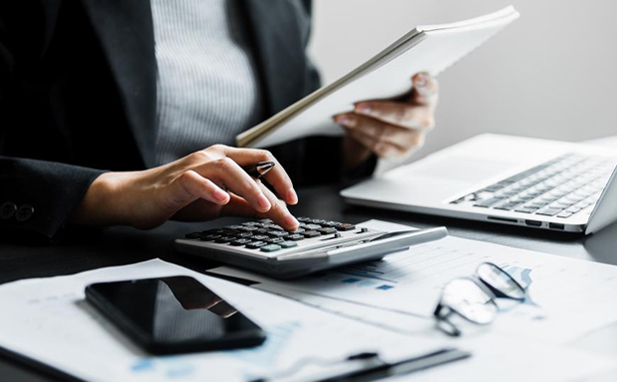Home ownership is every person’s dream, and for the majority of people, that dream finally becomes a reality through their Principal Place of Residence (PPOR). However, come tax season, the question on everyone’s mind is – Do you have to pay tax on your PPOR?
It’s a reasonable one because the tax regulations on property can be a little confusing. Some houses are taxed when you sell them, and others are exempted outright.
The good news is that if you know how the rules operate, you can make better decisions and not be surprised down the line.
This guide will take you through all that you need to know about tax on your PPOR in an easy-to-understand and straightforward manner.
1. What is a PPOR?
Before we get stuck into the tax, let’s sort out what a Principal Place of Residence (PPOR) actually is.
Where You Live Most of the Time
Your PPOR is the place you actually reside in, not merely a property you hold. It may be a house, unit, or even a townhouse, provided it’s your primary residence.
No Intention to Rent or Sell Immediately
A PPOR typically implies that you don’t purchase it with the primary intention of generating a profit immediately. It’s more about dwelling, not merely investing.
Basic Needs Count
It’s where you receive your mail, where your relatives reside, and where you go back to after work. If that’s your situation, you’re discussing your PPOR.
2. Do You Pay Tax When Selling Your PPOR?
For the majority of homeowners, no. The Capital Gains Tax (CGT) exemption is what makes your PPOR unique.
Full Exemption on Sale
If it has been your PPOR throughout the time you’ve owned it, you don’t have to pay tax on any profit you realize when you sell.
Partial Exemption
If you let it out briefly or used it for work, you may only be entitled to a partial exemption. That is, part of the profit may be taxable, depending on how long you didn’t live there full-time.
Six-Year Rule
Even when you rent out and live elsewhere, your house can be claimed as your PPOR for six years, provided that you don’t claim any other house as your PPOR within that time. For tailored advice on such rules, speaking with the best tax accountant in Melbourne can help you maximise benefits and stay compliant.
3. When Tax Applies to Your PPOR?
There are periods when your PPOR will not be entirely tax-free.
Being Used for Business
If you employ part of your house as a business area, such as having a salon in your garage, that area may not be eligible for the full exemption. You may be liable for tax on it when you sell, so it’s always wise to seek advice from a tax accountant in Melbourne to understand your obligations clearly.
Owning Multiple Properties
If you have two properties, you’ll have to designate which one is your PPOR. The other property won’t receive the same tax concessions.
Development or Subdivision
If you divide your block and sell some of the land, that portion may not qualify under the PPOR exemption. Tax may be due depending on how it’s treated.
4. Important Things to Keep in Mind
Buying and selling your PPOR isn’t always cut and dried. Some regulations can make a huge difference.
Moving In Right Away
To qualify for the full main residence (PPOR) exemption on Capital Gains Tax:
- You do not have to move in immediately after purchase.
- You must occupy the property as your main residence at some point to qualify for the exemption.
Spouses with Properties
Husbands and wives cannot simultaneously claim two PPOR exemptions. You will have to decide which home receives the advantage.
Home Inherited
If you’re inheriting a property, the tax situation is slightly different. Whether or not you pay tax is based on when the late person originally purchased the house and whether it was their PPOR.
Some companies even provide bookkeeping services in Melbourne, which keeps you on top of your books and makes tax season a breeze.
5. How to Maximise Your PPOR Benefits
Although the majority of individuals will not be required to pay tax on their PPOR, there are measures that can be taken to ensure you’re not neglecting possible benefits.
Keep Good Records
Even though you believe you are exempt, hold on to records such as purchase agreements, renovation fees, and rate notices. In case you ever need to document it, records make things simpler.
Know the Six-Year Rule
In the event that you leave and become a renter, knowing precisely how long you can claim your PPOR status prevents unwanted tax bills.
Seek Professional Guidance
Property tax legislation is altered frequently, and each person’s case differs. Consultation with a tax agent in Melbourne can provide you with certainty and a clear mind.
6. Myths Regarding PPOR and Tax
There are some misunderstandings that individuals tend to have:
- Myth 1: Selling Any Residence Results in Tax
No. If it’s your PPOR, you might not be required to pay any CGT at all.
- Myth 2: Renovations Drive Tax Bills Up
Upgrading your PPOR doesn’t necessarily translate to more tax. Costs of significant improvements can actually lower CGT if the property is not completely exempt.
- Myth 3: You Can Claim Multiple PPORs
You’re entitled to only one PPOR exemption at any given time, even if you own multiple properties.
Don’t let these common misconceptions catch you out. If you are wondering how these rules apply to your own home and whether you could be missing out on exemptions, Leading Tax Experts can help. We know that understanding tax rules around your Principal Place of Residence (PPOR) can feel a little overwhelming.
While many homeowners don’t pay tax when selling their main home, certain situations, like partial rentals, investments, or land over the exemption threshold, can change things.
That’s where the right advice makes all the difference. Our team is here to make tax simple, guide you through exemptions, and help you avoid costly surprises.
Conclusion
In conclusion, one small mistake in how you handle your PPOR can lead to a surprise tax bill. That’s why it pays to get help from professionals.
A trusted business or tax advisor in Melbourne can guide you through the specifics, especially if your situation involves multiple properties, part-use for business, or inherited property. With the right advice, you can make confident decisions and avoid costly surprises.
Leading Tax Experts are here to make tax rules around your PPOR simple and stress-free.
While the rules can feel confusing—especially when it comes to exemptions, renting out your property, or selling your main residence—our team is here to guide you every step of the way.
We focus on giving clear advice tailored to your situation, so you can make smart choices without the worry of missing out on benefits.
FAQ
What is the PPOR rule in Australia?
The PPOR rule means your Principal Place of Residence (the home you actually live in) is usually exempt from capital gains tax. It’s designed to protect homeowners who aren’t investing but simply living in their home.
Do you pay land tax on your primary residence in Australia?
No, you don’t pay land tax on your primary residence in most states. Land tax usually applies to investment properties, vacant land, or second homes. Your main home is considered exempt as long as you live in it.
How do I know if I need to pay tax in Australia?
If you earn money in Australia—through wages, business, or investments—you’ll likely need to pay tax. The ATO looks at your income, residency status, and tax thresholds.



